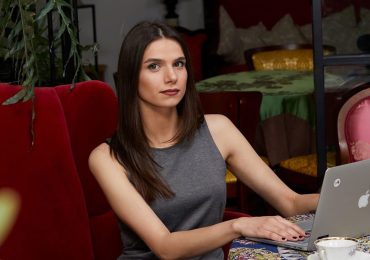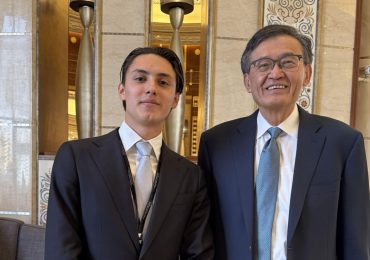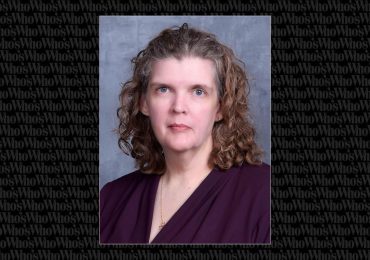Photo Courtesy of: Wei Wang
In the blistering heat of a Hainan summer, a small ice cream brand found itself seducing locals with an imperial recipe once reserved for royalty. That brand, Huckleberry Ice Cream, didn’t just rise through the ranks of novelty; it challenged the market’s taste for imported indulgence. At the helm of its transformation was Wei Wang—a woman born into business, but not confined by it.
Wei didn’t start by disrupting systems. She started by learning them. In Beijing, she inherited not just the pressures of a family business in real estate, but the gaze that follows women who dare to take up space in boardrooms. Her first ventures were quiet experiments: in capital, in strategy, in how one builds something that lasts. But this story, like all stories worth telling, turns sharply. From Beijing to Sydney, from cold desserts to silent pain, Wei Wang shifted focus from the palate to the psyche.
And it is in this pivot—from investor to healer, from ice cream to AI-powered mental health—that her story begins to challenge more than just business orthodoxy. It challenges how we, as a society, define value.
The Economy of Empathy
Wang’s transition from real estate and consumer goods into mental healthcare was not prompted by market forecasts or competitive gaps. It came from watching people—particularly women—fall through cracks. Women whose struggles with anxiety or isolation were met with silence. Women who weren’t tragic, or dramatic, but simply tired.
Australia, where Wang launched her platform Sisterhood, paints a sobering picture. Nearly 50% of Australian women report experiencing mental health issues in their lifetime. The numbers rise among young girls and women going through menopause—a phase often treated as an afterthought in both medicine and media. It is here that Sisterhood sets its foundation: not in broad strokes, but in the intimate, often invisible spaces where women unravel.
Sisterhood is part technology, part philosophy. Built with the help of AI and natural language processing, it tailors psychological support based on each user’s life phase—puberty, fertility, menopause, and beyond. The matching isn’t just based on need but lived resemblance: connecting users to others who have been there, survived that.
“When someone feels seen—really seen—it changes their relationship to pain,” Wang says.
This is not wellness washed in pastel. Sisterhood doesn’t traffic in affirmations or commodified self-care. It offers something far rarer: continuity, personalization, and acknowledgment that mental illness does not schedule itself around work meetings or childcare hours.
The Cost of Cultural Silence
The pivot to mental health wasn’t without cost. Wang admits to the sting of failure in earlier ventures—most notably YiYu, her “social fishbowl” platform that was designed to foster deeper digital connection but was eventually eclipsed by more aggressive Chinese tech giants. That loss, however, unearthed something deeper: the value of smallness. In meaningful social circles. In micro-communities. In being present.
This philosophy carried into Sisterhood, which centers not on broadcasting wellness, but building spaces where suffering is not pathologized, but shared.
In China, where Wei was raised, mental illness still carries a social penalty. In Australia, the infrastructure exists, but women—particularly migrant and minority women—often navigate it alone. Wang herself speaks to the experience of trying to access mental health resources that didn’t assume a white, middle-class point of reference.
“I’ve seen women carry shame in silence because they didn’t have the language or permission to fall apart,” she says.
Sisterhood doesn’t erase these cultural divides. Instead, it acknowledges them, providing adaptive support systems that respect cultural nuance while rejecting stigma.
When Innovation Serves the Invisible
In the language of venture capital, Wang’s new direction might seem less lucrative. There’s no immediate return-on-investment in peer-matched therapy sessions. But not every yield can be counted quarterly.
The AI underpinning Sisterhood is purpose-built to anticipate user distress and suggest pathways to recovery—not as a substitute for care, but as a bridge to it. It is data science in the service of softness, not scale. The recovery plans it generates aren’t diagnostic endpoints but dialogic beginnings—crafted with the help of clinicians, adjusted through real-time feedback, and reflective of evolving needs.
To understand what Wang is building, one must also understand what she is not: She is not mining trauma for profit. She is not treating women’s crises as market segments. What she is doing is refusing to allow the complexity of female mental health to be reduced to a marketing archetype.
Redefining What It Means to Succeed
Wei Wang’s story is not one of linear success. She has tasted both acclaim and obscurity. But through it all, what remains constant is her belief that entrepreneurship should carry a social responsibility—that business can be about more than conquest.
“Success, to me, is when the people you’re building for start building something of their own,” she reflects.
It’s not a quote meant for a pitch deck. It’s a principle forged in lived experience, in setbacks and reinventions. From frozen desserts to the thawing of silence around mental illness, her pivot reflects a larger truth: The most urgent innovations often begin in overlooked pain.
A Final Word, and a Challenge
Wei Wang does not fit easily into any one narrative. She is neither disruptor nor savior. She is a translator—of experience into infrastructure, of empathy into design.
Her journey—from Beijing’s boardrooms to the emotional corridors of Sisterhood—offers a rare template for how to lead with moral imagination. It reminds us that innovation can begin not in ambition, but in listening. And that sometimes, the greatest act of entrepreneurship is not the creation of capital, but the insistence that every woman’s pain deserves a name, and a response.
















